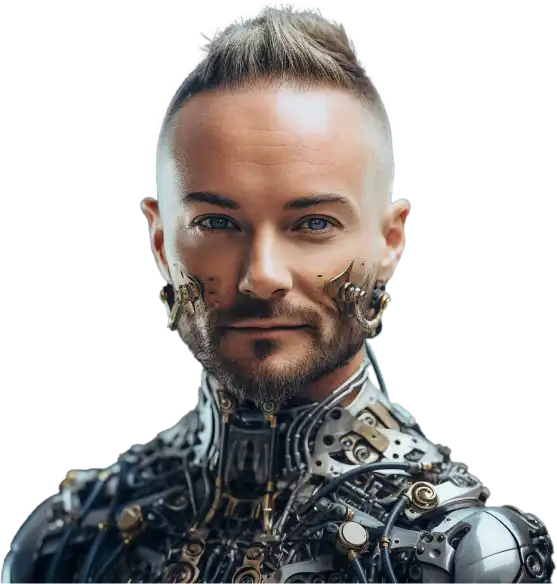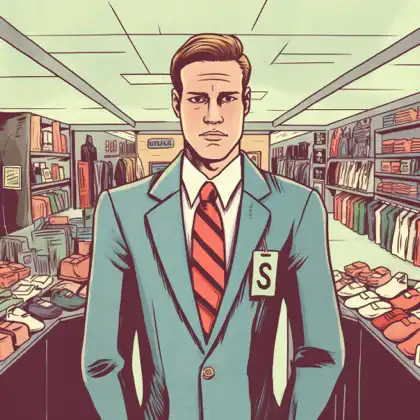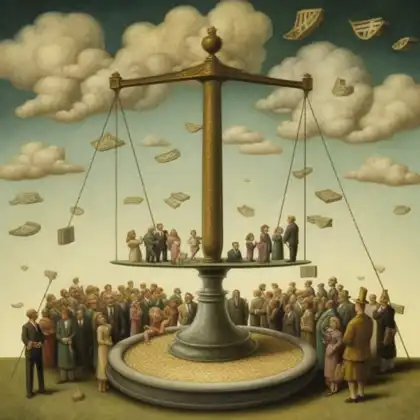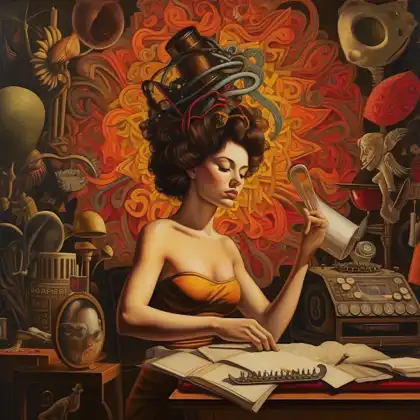We long for the past and fear the future. This is a primal reaction to the linear nature of time and our limited influence of it. The past is unchanging, certain and free from the compulsion to act. Our inability to influence the past is a sanctuary from accountability.
We often imbue our past with romanticised qualities like simplicity, quality and authenticity.

Modern brands have taken advantage of this in recent times by using the visual signifiers of recent history to convey/personify these qualities.
Accountability of the present
By contrast the action of the present demand. It’s the period of time in which we experience.
“Is the present an infinitesimally small period of time or simply an arbitrary bracket of time between one memorable event to the next?”
While the present is the most elusive we believe it to be the most “real.” The present is the point at which all the infinite possibilities collapse into a single outcome. It’s the moment when one thing is and everything else isn’t. The present is a black hole for the future.
Weaving a thread
The experiencing self & the remembering self
You perceive the past differently than you experience the present. A series of pleasant experiences can be marred by the memory of a single bad event. That bad event will stand out in your memory and govern your perspective. This is an important separation when understanding how you create a sense of self and a set of values. Your values are formed by your memory of the past and not your experience of the present.
Collective learning
Individually our behaviour is shaped by our memories but we also mimic the actions of others. You do this to garner social capital and fit within the norms of reciprocity. This creates a type of collective or communal learning.
Values and beliefs are built up over time and spread virally to receptive individuals. This culmination of prevailing values is our social narrative and represents the driving force of large-scale change.

The “low fat” myth started in the 80s. It was started by misleading research and propagated by media and social circles. Thus, for better or worse, began the age of selective eating.
Side note: phantom memories
Your memories shape your behaviour; cause and effect. Why then do we share values with others often without experiencing the “cause” of that value? At the individual level, it would seem we create phantom memories; a sort of vicarious past. This transmission of experience through shared values is rapid and one of our greatest strengths as a species. However, this passive transmission makes it inherently flawed.
Consumer behaviour
What you buy is governed by your cognitive consonance i.e. your internal consistency. This running calculator is inextricably tied to your perception of self and understanding of where you fit relative to others. This is incredibly important to understand as successful brands will act as a conduit for their consumers to develop purchasing habits that align with their sense of self.

The passive future
On an individual level, our anxiety about the future comes from our ability to influence it. Decisions require energy and thought and make you accountable for their outcome.
“There is a fork in the road. If you don’t know where you want to go, then the choice doesn’t matter.”
Lewis Carroll – Alice in Wonderland
It’s much easier to let the future come as it is, to be less in control, only steering to avoid icebergs. Taking a considered action is much more difficult than repeating a habituated routine. The inevitability of change is omnipresent, but the roadmap is a series of blurry lines in the rearview mirror.
A new pattern
Social narrative: the driving force of change
Our perception of the future shapes our actions and is governed by the prevailing social narrative. In a sense, it’s a self-fulfilled prophecy. We develop a rough idea of what we expect the future to be and make decisions in the present based on that belief. This allows the individual once again, to make decisions passively, within the realm of perceived possibility. But the future doesn’t exist. It is unknowable, intangible.
Instigators of change
We remember significant changes by a protagonist, an instigator. This echoes the Remembered Self. Any event in history can be marked, and symbolised by a single thing. e.g. The moon landing: Neil Armstrong or the collapse of communism: The Berlin Wall. These icons mark a significant shift in the prevailing cultural narrative. In our memory, that icon is imbued with the nuance and values surrounding that shift in narrative.

Brands as instigators
Successful brands can be icons of change, both a reflection and an instigator. After WWII brands played a role in changing the social narrative. High art conveyed mourning and reflection whereas commercial art was optimistic portraying a lifestyle of opportunity. Disregarding morality, for better or worse began the consumer culture we know today.
Disruptive innovators
Our perception of the future shapes our behaviour and a clear vision of the future is essential to a successful brand. They are iconic of change and they know why. In recent times, brands like Airbnb, Alibaba, Spotify, Uber and more are all successful because they challenged the prevailing norms of behaviour and offer to the consumer an alternate view of the future. Note that these aren’t just arbitrary progressions, it’s not just the service that makes it popular it’s the change in lifestyle.
Beacons of change
We perceive our history through icons and we can perceive our future in the same way. Love or hate it Apple represents a significant shift in the cultural mindset. More than anything Apple makes technology accessible. Usability is always a premium, reducing the learning barrier required to interface and access a wealth of information. Skype is a free international video service, and yet it is a commercial business same to Wikipedia and many more. These companies offer the individual a rallying point and a way to support the future they want to see.

Crafting the future
Thinking about the sort of future you want to live in will shape your every action in the present. The future is shaped by both our actions and our perceptions, it affects your decisions, your habits and your influence. Progressive brands offer a way for you to support these ideas and extend your influence beyond conventional reach. A new vision of the future can permeate society and shift the global cultural narrative. Is it any wonder that we have so many innovative companies emerging?



